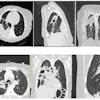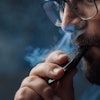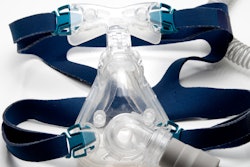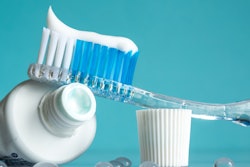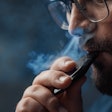
A healthier mouth may come down to catching more Zs. People who slept at least seven hours per night were less likely to have dental cavities than those who slumbered for less than seven hours, according to a study published on July 18 in BMC Oral Health.
Just one extra hour of sleep may dramatically reduce a person’s chance of having caries, according to a large study of the U.S. population.
“Decreased sleep duration was associated with higher levels of dental caries,” wrote the authors, led by Dr. Abdullah Alawady of the Kuwait Ministry of Health.
Though too little sleep has been established as a risk factor for multiple medical conditions, there is limited research that has explored the relationship between tooth decay and short sleep duration in adults.
To investigate the association between sleep duration and caries, the authors used data from the 2017-2018 U.S. National Health and Nutrition Examination Survey. The study included 5,205 patients age 16 and older who completed a dental exam and sleep questionnaire. Regression analyses were then conducted, according to the study.
Overall, the findings revealed a statistically significant negative relationship between caries and sleep duration. Those who reported an average sleep duration of seven or more hours per night were less likely to have caries compared to people who slept fewer than seven hours (adjusted odds ratio [AOR] = 0.52; 95% confidence interval [CI], 0.33 to 0.82; p < 0.05)], the authors wrote.
For a one-hour increase in average hours of sleep, the AOR of having an incident of dental caries may decrease by 0.86 (95% CI, 0.75 to 0.98; p < 0.05). Also, the adjusted mean ratio (AMR) of having a case of dental caries may drop by 0.97 (95% CI, 0.96 to 0.99; p < 0.05), and it was lower for those who reported sleeping seven or more hours nightly than people who reported sleeping fewer than seven hours per night (AMR = 0.92; 95% CI, 0.87 to 0.99; p < 0.05), they wrote.
However, the study had limitations, including the use of self-reported sleep behavior. It can be subject to reporting and recall bias, the authors wrote. In the future, more longitudinal studies should be conducted to explain the underlying biological mechanisms by which too little sleep affects the oral microbiome, oral biomarkers, and pH levels that play a role in the development of tooth decay, they wrote.
“Findings of this cross-sectional representative study of the U.S. population revealed a statistically significant negative association between sleep duration and dental caries,” Alawady et al wrote.

